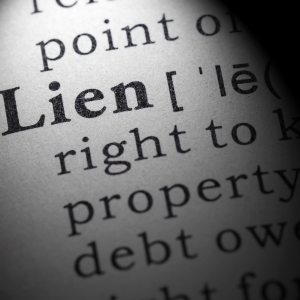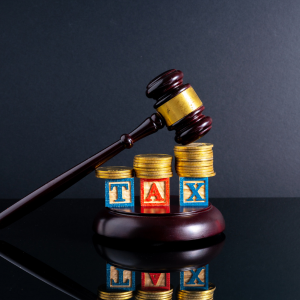
How to Sell Land with a Lien in North Carolina
So the property taxes slipped through the cracks during your busy year. Then your contractor filed paperwork after a payment dispute. Whatever the reason, you’ve got a legal claim attached to your North Carolina property and bills to pay.
Liens don’t automatically make your land worthless. North Carolina real estate market is hot enough that investors and buyers actively seek properties with liens. You just have to understand their perspective and work the system to your advantage!
Read this comprehensive guide and sell your land in North Carolina with a lien in no time!
Can You Sell Land with a Lien in North Carolina?
Yes, and people do it all the time. Investors are buying tax lien properties at courthouse steps every month across North Carolina. Developers grab land with contractor liens because they know how to work the system. Flippers actually look for North Carolina properties with liens because it scares off the competition.
You’re looking for buyers who get it. These aren’t families searching for their dream homestead. They’re business people who see liens as part of the deal, not deal-breakers.
North Carolina population keeps exploding, so land stays hot even when it comes with baggage.
You need to be honest about your situation and price it right. Buyers who work with liens expect straight talk.
If you try to hide problems, they’ll walk away. Lay everything out clearly, and they’ll make offers. That’s the first rule if you want to sell your land for cash in North Carolina and other states, even with a lien.
What is a Lien on North Carolina Property?
A lien is basically a legal sticky note on your property that says, “pay me first before you sell this thing.” It’s not ownership, but it might as well be. Try to sell without dealing with it and the lien holder can shut down your whole sale.
North Carolina recognizes different types of liens, and they don’t all play by the same rules. Tax liens jump ahead of almost everything else because counties need their money. We’ll discuss all other lien types in detail in the next section.
Unfortunately, liens grow like weeds. Interest piles up every month. Penalties get tacked on. Legal fees start adding up. That $3,000 tax bill can turn into $5,000 fast if you sit on it.
This is why you need to move when you’re figuring out how to sell land with a lien in North Carolina.
Types of Liens That Affect North Carolina Land Sales

Different liens mean different headaches, so let’s break down what you might be dealing with on your North Carolina property.
Property Tax Liens
If you miss your property taxes in North Carolina, the county will slap a lien on your land. Counties don’t play games because they need that tax money to keep things running.
Tax liens get VIP treatment in North Carolina. They jump ahead of mortgages, credit cards, you name it. The county can even sell your tax debt to investors who then collect interest from you.
But most counties will work with you on payment plans if you talk to them before things get ugly.
Mechanic’s Liens
Got a contractor who didn’t get paid? They can file one of these bad boys.
This may happen if you hired someone to clear trees and the payment went sideways, a supplier delivered gravel and never saw their money, etc. They file a mechanic’s lien and suddenly your property’s tied up.
North Carolina gives contractors 90 days from their last work day to file this lien. Once it’s filed, they’ve got a year to actually do something with it or it goes away.
So, what to do? Talk to them directly instead of letting lawyers get involved and eat up everyone’s money.
Judgment Liens
These show up after someone takes you to court and wins. It could be anything, really, like a business deal gone wrong or an old credit card debt.
Once they get that court judgment, they can stick it to your North Carolina property like glue.
Judgment liens in North Carolina last 20 years and can be renewed if the creditor really wants to be annoying. They attach to whatever real estate you own in that county.
These liens often have wiggle room for negotiation, especially if they’ve been sitting around for a while.
Step-by-Step Guide: How to Sell Land with a Lien in North Carolina

Selling North Carolina land with a lien won’t be a walk in the park, that’s for sure. But it’s not impossible either.
Step 1: Conduct a Comprehensive Lien Search
First things first! You need to know exactly what you’re dealing with when selling land with a lien in North Carolina. Don’t just guess or assume you only have one lien just because you know about one.
Search North Carolina County Records for Property Liens
Your county’s website is your first stop. Most counties have decent search systems where you can plug in your property address or your name, but don’t just search one way.
Try your property address, your full name, and any business names you might have used because liens can get filed under different variations.
Look back at least 10 years if you can, since some liens take forever to show up in the system. This is especially true if there were court cases involved. Download everything you find because you’ll need these records later.
Check for Federal and North Carolina State Tax Liens
County records won’t catch everything because the IRS and the North Carolina state Department of Revenue file their liens in different places.
You should also check the Secretary of State’s UCC filing system for federal tax liens. Meanwhile, for state tax issues, contact the state Department of Revenue directly.
They’re actually pretty helpful if you call and explain you’re trying to sell your property and need to know exactly what you owe.
Work with North Carolina Title Companies for Complete Discovery
If you want to spend some money to save yourself a major headache down the road, go this way.
Title companies do this stuff all day long and know where liens like to hide, plus they’ll find liens that got filed wrong or recorded in weird places.
If they miss something, their insurance covers it. That peace of mind might be worth the cost, especially when you’re learning how to sell land with a lien in North Carolina.
Step 2: Identify All Liens and Determine Total Amount Owed
Your next step is adding up all the damage and getting the current payoff numbers.
Don’t just look at the original amounts on old paperwork because liens grow over time.
Call every single creditor who has a lien on your North Carolina property and tell them you’re planning to sell. Get current payoff quotes in writing, if possibl,e because verbal quotes don’t mean much when it’s time to close.
AND don’t forget to ask about daily interest rates since some liens accrue interest every single day.
A payoff quote from Monday might be wrong by Friday, so knowing the daily rate helps you plan your closing timeline.
Step 3: Evaluate Your Equity Position and Choose Resolution Strategy
Now you need to figure out your best play for selling your land in North Carolina with liens attached. You’ve got four main options. The best option depends on how much equity you’ve got and how much cash you can scrape together.
Option 1: Pay Off the Lien Before Listing
This is the clean and simple route if you’ve got the cash sitting around. Pay off the lien, get your release paperwork, and then list your North Carolina property like any other piece of land.
North Carolina buyers love clean titles and you’ll probably get more offers and better prices. The downside is you need money upfront.
Also, if your land doesn’t sell quickly, you won’t have anything to show for until closing day.
Option 2: Use Sale Proceeds to Clear North Carolina Property Liens
This is probably the most common way people handle liens when selling land in North Carolina. You find a buyer, negotiate a sale price, and then use the money from closing to pay off the liens before the title gets transferred.
Everybody gets paid at the same table on the same day. Your closing agent handles all the math and makes sure the lien holders get their money first, then you get whatever’s left over after all the debts are cleared.
Option 3: Negotiate Lien Settlements with Creditors
Many creditors will take less than the full amount if you can pay cash right now.
Old judgment liens are often easily negotiated because the creditor might be tired of chasing you around.
Even tax authorities sometimes have programs where they’ll reduce penalties and interest if you pay the principal amount quickly.
Call them up, explain you’re selling your property in North Carolina, and ask if they’ll take a reduced payoff. The worst they can say is no, but you might be surprised how often they say yes.
Option 4: Transfer Liens to the Buyer (When Possible)
This one doesn’t happen often, but some buyers will actually take on your liens as part of the deal.
This usually happens with investor buyers who know how to work the system and can handle the paperwork hassles.
They’ll factor the lien amount into their offer and deal with paying it off themselves after they own the property. You get a clean sale, they get the property at a discount, and everybody gets home happy.
Step 4: Handle Tax Lien Specifics (If Applicable)
Tax liens in North Carolina are usually prioritized over everything else.
Counties love their property tax money, and they’ve got a whole system set up to collect it.
When you don’t pay your property taxes, the county doesn’t just sit around waiting. They file a lien and then sell that lien to investors at public auctions called tax lien certificate sales.
These investors pay your tax debt upfront and then collect interest from you, usually at rates between 5% and 18%, depending on the bidding at the auction.
You’ve still got time to pay off the debt and keep your property, but now you owe the investor instead of the county. If you don’t pay up within a few years, that investor can actually foreclose on your land and take ownership.
Don’t panic yet because you’ve got redemption rights. This means you can pay off the tax lien and interest at any time before the investor forecloses.
State law gives you at least two years to redeem your property, and in some cases, longer depending on when the tax lien certificate was issued.
If you’re planning to sell your land in North Carolina, contact the tax lien certificate holder directly to get a current redemption amount. They’re required by state law to give you that information.
Step 5: Prepare Documentation
Selling land with a lien in North Carolina requires more documentation than a regular sale. You’ll need proof of everything, like lien amounts, payoff quotes, release documents, the whole nine yards.
Start gathering all your lien documentation right now because you’ll need it for potential buyers, real estate attorneys, and title companies.
Make copies of everything and keep the originals in a safe place. Losing important lien documents can delay your sale by weeks while you wait for replacements from creditors or government offices.
Working with a real estate attorney who understands state lien laws is also essential. They can identify potential issues early on and help you avoid expensive errors during the sale. For more help, Contact Us at Fast Land Offers.
Step 6: Deal with Buyer Financing and Purchase Challenges
Most traditional buyers can’t get loans on properties in North Carolina with liens attached. Banks hate liens because of the extra risk that loan officers don’t want to deal with.
Your typical family looking for land to build their dream home will run into a brick wall when their lender finds out about your liens.
Most mortgage companies won’t touch a property with active liens because they can’t get clear title insurance. Without title insurance, they can’t protect their investment if something goes wrong down the road.
This is why cash buyers in North Carolina and investors are the go-to for many in these situations.
Step 7: Execute the Lien Release Process and Complete the Sale
Now, let’s get this lien mess cleared up once and for all. The lien release process is where everything comes together.
Obtain Proper Lien Release Documentation
Once you pay off a lien, don’t just assume it disappears. You need official paperwork proving the debt is gone.
Contact each lien holder immediately after payment and demand a written lien release or satisfaction document. Some creditors are slow about filing these releases, and you can’t close your sale until every lien shows up as officially cleared in the public records.
Get the release documents notarized if possible and make sure they include your property’s legal description exactly as it appears on your deed.
Record Lien Releases with County Clerks
Getting the release documents is only half the battle. You’ve got to file them with your county clerk’s office to make the lien release official.
Take the original signed lien release documents to your county clerk and pay the recording fees (usually around $10-30 per document).
Make sure you get certified copies of the recorded releases because your title company will need these for closing.
Don’t mail these documents or trust someone else to handle this step.
Ensure a Clear Title for Purchase Transfer
Your title company will run a final title search right before closing to make sure all liens are properly cleared. This is when you’ll find out if any lien releases got messed up or if there are any surprise liens you missed during your initial search.
That is why you shouldn’t schedule your closing until you get confirmation that your title is completely clean.
If problems pop up at this stage, you might need to delay closing while you track down missing paperwork or deal with liens that weren’t properly released.
Special Considerations for Different Types of North Carolina Property

There are all kinds of land, and this affects how you can sell it if they are attached to a lien.
Residential vs. Commercial Land Sales in North Carolina
Residential land buyers are basically scared rabbits when it comes to liens. They see paperwork problems because they just want a simple place to build their dream home.
These people usually need bank loans, which means your liens will make their mortgage applications get rejected.
Commercial land buyers are totally different. They eat complicated deals for breakfast and might actually get excited about your liens. They see dollar signs and negotiation opportunities.
Most commercial buyers have dealt with messy situations before and they’ve got teams of lawyers and accountants who know exactly how to handle lien resolution.
They’ll factor your lien amounts into their offer calculations and treat the whole thing like just another line item on their spreadsheet. This can actually work in your favor if you price things right and don’t get emotional about the numbers.
North Carolina Agricultural Land with Liens
Farm and ranch land in North Carolina can have some seriously weird lien situations that’ll make your head spin.
We’re talking about feed store debts, equipment financing gone bad, and crop loans that got tangled up with multiple properties.
State agricultural exemptions and tax breaks can totally mess with lien priorities, so don’t even think about trying to figure this out yourself because you’ll just end up more confused than when you started.
Agricultural liens can also span multiple years and involve seasonal payment schedules that don’t make sense to regular real estate people.
The buyers who go after agricultural land are usually farmers or investors who understand the business.
Waterfront Property Complications
Waterfront land is where liens get really nasty because everything’s more expensive. There are about fifty different government agencies that love to stick their noses into coastal property issues.
Environmental liens can pop up from nowhere if some inspector decides your property violated wetland regulations or coastal construction rules, and these government liens are like zombies. They never die and they keep growing bigger over time.
The worst part about waterfront liens is that they often involve federal agencies like the Army Corps of Engineers or the EPA.
This means you might be dealing with bureaucrats who have never even seen your property but have the power to make your life miserable.
Buyers who want waterfront land usually have deep pockets and experience with complicated purchases.
But even they can get nervous if you’ve got environmental liens because those can take years to resolve.
Alternatives to Traditional Sales For Your Land With Lien: Selling to North Carolina Cash Buyers
In many cases, the whole traditional real estate process just isn’t worth the headache, especially when you’re dealing with liens that scare off regular buyers.
Cash buyers who specialize in properties with liens in North Carolina have seen every scenario you can think of, so your situation probably won’t shock them or send them running to their lawyers.
They’ve got systems in place to handle lien research, creditor negotiations, and all the paperwork nonsense that makes regular buyers nervous.
While a cash buyer in North Carolina may offer slightly less to account for lien-related costs and repairs, you gain the peace of mind of a hassle-free process, no out-of-pocket expenses, and the certainty of a guaranteed closing date.
Key Takeaways: How to Sell Land with a Lien in North Carolina
Your biggest decision when selling land with a lien in North Carolina is choosing between fixing the liens yourself and selling to someone who can handle them for you.
Either way, don’t try to hide liens from potential buyers because state law requires disclosure. Honesty also builds trust with serious buyers.
If you’re ready to sell your North Carolina land with liens and want to skip the hassle of traditional marketing, work with us at Fast Land Offers.
We are experts in buying land with liens and can close quickly without requiring you to resolve all the lien issues first. Call us at (843) 606-1001 to discuss your situation and get a no-obligation offer.
Helpful North Carolina Blog Articles
- Can You Sell Land if You Owe Taxes in North Carolina
- How to Find Out the Zoning of My Land in North Carolina
- How to Sell Land With a Lien in North Carolina
- Paperwork for Selling Land by Owner in North Carolina
- How to Sell Land Without an Agent in North Carolina
- How to Sell Land with Mineral Rights in North Carolina

Sell Your Land The Easy Way: Get Your Cash Offer Below…
We are direct land buyers. There are no commissions or fees and no obligation whatsoever. We buy land in 30 days or less! Start below by sharing where your property is and where we can send your offer…